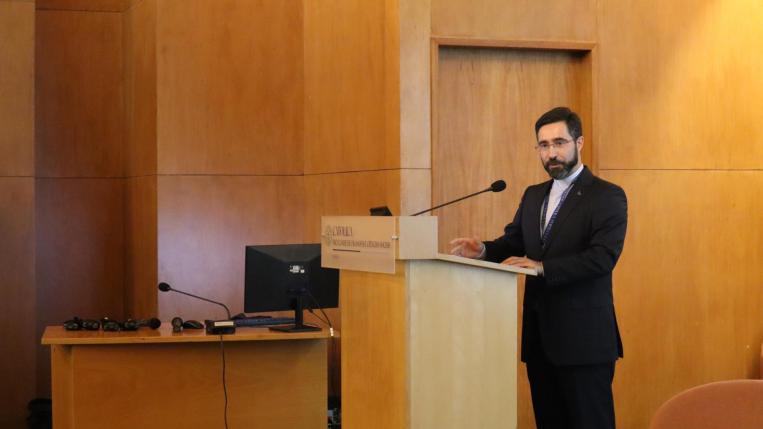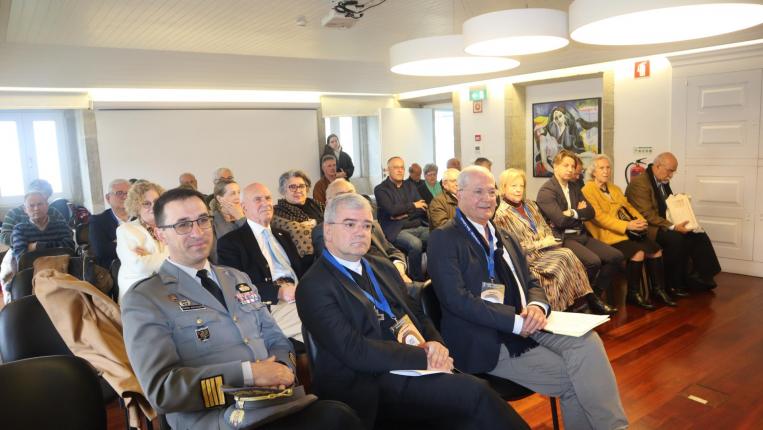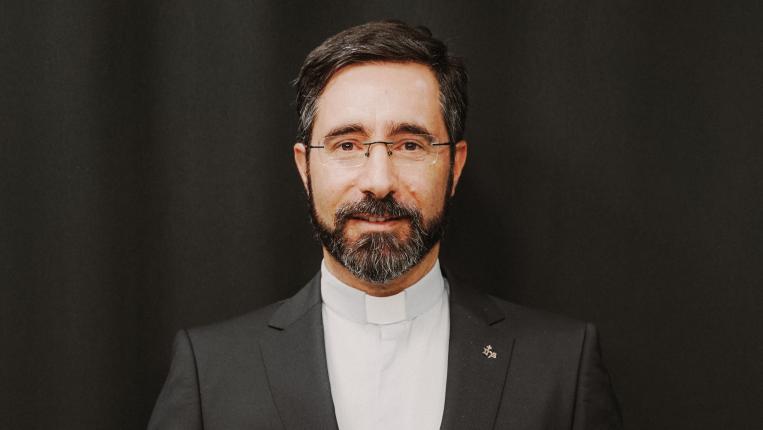
The new director and his team were sworn in by the rector of UCP at a session also attended by the Archbishop of Braga
The new director of the Faculty of Philosophy and Social Sciences of the Portuguese Catholic University in Braga, professor and priest Bruno Nobre, expressed ‘confidence in the future’ at the inauguration session and the commitment of the team he leads to initiate the necessary reforms to maintain the Faculty as a centre of innovation and academic quality in the country.
Recalling the legacy of ‘academic excellence’ of the Faculty of Philosophy and Social Sciences (FFCS), especially in the areas of Philosophy and Humanities, the professor emphasised the broadening of the institution's activities to include Social and Human Sciences and also Data and Computer Sciences over the last two decades, and the need to continue investing in pedagogical innovations.
According to Bruno Nobre, the FFCS continues to affirm its place as a university institution of ‘reference in the Portuguese academic context’, with a growing international impact, especially in the field of interdisciplinary research into the human person and their interaction with society and nature.
‘The Faculty of Philosophy and Social Sciences is based in one of the youngest and most dynamic regions of our country, where the presence of the Portuguese Catholic University can certainly be strengthened,’ he said, expressing the Faculty's desire to maintain and strengthen relations with institutions and companies in the region.
‘Many of your representatives are here, they know they can count on us, we have no doubt that we can count on you,’ he added.
Bruno Nobre and the other members of the Board of Directors were sworn into office by the Dean of the UCP, Isabel Capeloa Gil, at a ceremony in the Aula Maga of the FFCS attended by several academics and invited civil and religious authorities, including the Metropolitan Archbishop of Braga, José Cordeiro, and the former director of the FFCS, Father José Lopes.
Affirming that he wants to define the strategy for the Faculty with broad participation, the new director of the FFCS has already put forward some guidelines for the mandate, leaving the commitment to maintain a ‘Catholic and universal Faculty, attentive to the world and its challenges’.
In this sense, and within the framework of the university's identity and mission, he expressed his desire to nurture and deepen the institution's Jesuit identity, arguing that ‘it is urgent to strengthen’ the Faculty's relationship with the works of the Society of Jesus.
Affirming that the FFCS has a ‘young, qualified and creative’ teaching staff, the new director expressed confidence in the Faculty's ability to continue to contribute to the ‘advancement of science’ and face the ‘demanding challenges’ facing contemporary societies.
‘I know that there will be no shortage of difficulties and obstacles, but difficulties and obstacles that I will not face alone. I know I can count on dedicated collaborators who enthusiastically serve UCP's mission. On the Board of Directors it will be a privilege to work with a young, competent and creative team that will undoubtedly be capable of carrying out the reforms the institution needs,’ he said.
The new Board of Directors is made up of professors Paulo Dias, João Amadeu Silva, Berta Maia, Catarina Vieira da Silva and Simone Petrella.
To his predecessor, the new director left a word of recognition, emphasising that Father José Lopes and the rest of the board were a ‘dedicated and competent’ team that helped open up new paths for the University.
At the ceremony in Braga, the director of the Faculty of Education and Psychology at UCP's Porto Regional Centre, Raquel Matos, was also reappointed.
She said that among the actions her team intends to take forward are career development, strengthening the role of young students in the life of the academy and implementing a project to promote mental health, not from a ‘remedial’ point of view, but from a ‘health promotion’ point of view.
In her speech, the UCP rector emphasised the importance of academic and scientific leadership in the creation of knowledge aimed at the common good, saying that the role of a university, especially one with a Christian matrix, is to align education and research with the defence of the person and their integral development.
Isabel Capeloa Gil thanked the Society of Jesus for its historic contribution to the ‘empowerment of Portuguese society’, citing in particular the work of the FFCS in a region that is ‘so thriving and so important for the development and creation of economic value in the country’.
With regard to the new board of the FFCS, led by Father Bruno Nobre, he said that it will be able to honour the institution's legacy and face the challenges of the future by moving forward with more transdisciplinary projects.
The swearing-in ceremony was part of the annual CARe event, which brought together members of all the research units of the Portuguese Catholic University.





